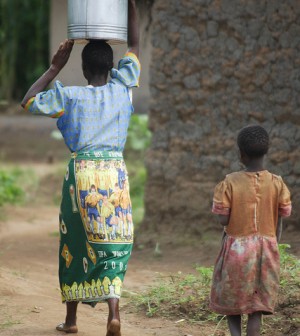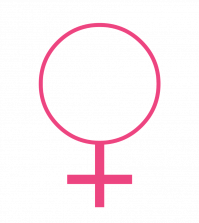- Finding Unshakable Power in a World That Wants to Pull Us ApartPosted 6 months ago
- What could a Donald Trump presidency mean for abortion rights?Posted 6 months ago
- Financial Empowerment: The Game-Changer for Women in Relationships and BeyondPosted 7 months ago
- Mental Health and Wellbeing Tips During and After PregnancyPosted 7 months ago
- Fall Renewal: Step outside your Comfort Zone & Experience Vibrant ChangePosted 7 months ago
- Women Entrepreneurs Need Support SystemsPosted 7 months ago
the importance of women in water programmes

Securing water is critical to achieve food security and improve rural livelihoods, especially for the women and men living in arid and semi-arid areas. But accessing this scarce resource can be difficult for those engaged in rural agriculture, women in particular.
Despite female farmers’ knowledge of crop production, local biodiversity, soils and local water resources, they are frequently not perceived as farmers by planners, engineers, extension staff and policy makers and thus tend to be excluded from making decisions about new agricultural water management systems. Yet, when women have the same decision-making power as men in irrigation, rainwater harvesting, flood control and watershed management, agricultural production can be greatly enhanced.
Designing effective, efficient, equitable and sustainable agricultural water systems is the focus of a publication written by FAO Gender and Development Officer Ilaria Sisto, Deputy Director of Gender and Water Alliance Esther de Jong and International Water Management and Gender Consultant and GEWAMED Project Manager Juan Antonio Sagardoy. Sisto explains why the booklet is important; “Passport to mainstreaming gender in water programmes: key questions for interventions in the agricultural sector” can serve as a conduit for improving women’s access to an essential resource and rural people’s livelihoods.
How can the same access to water for women and men make a difference in agriculture?
When women have equal access to productive resources and services they can increase the yields on their farms, which raises the agricultural output and reduces hunger in the world. This will also bring economic and social gains not only for women but also for households, communities and society.
Women represent 43 percent of the agricultural labour force in developing countries — yet their work is not always recognized by planners, engineers, extension staff and decision-makers. In many parts of the world women, compared to men, operate smaller farms, have fewer livestock and spend more time on household chores, such as fetching water. In Guinea, for example, women spend more than twice as much time fetching water and wood per week than men and in Malawi over eight times more. Women face disadvantages in many countries where they have less access than men to education, agricultural information and extension services, technology and financial services.
Read more on this and other crucial women’s world issues at http://www.un.org/womenwatch.






